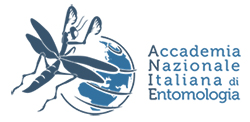
Matteo Montagna
matteo.montagna@unina.it
BIOGRAFIA
Nato a Como l’8 febbraio 1980. Nel 2006 si laurea con 110/110L in Scienze Agroambientali presso l’Università degli Studi di Milano, istituto presso il quale nel 2013 consegue il Dottorato di Ricerca in Biologia Animale. Dal 2020 Professore Associato di Entomologia, prima presso il Dipartimento di Scienze Agrarie e Ambientali dell’Università degli Studi di Milano (2020-2021), poi presso il Dipartimento di Agraria dell’Università degli Studi di Napoli Federico II (2021 – ad oggi). Dall’inizio della carriera ha pubblicato più di 80 lavori scientifici in ambito entomologico.
I suoi principali interessi di ricerca riguardano lo studio dell’ecologia ed evoluzione degli insetti. Nello specifico si occupa delle interazioni tra insetti, microrganismi e piante, con particolare interesse verso il ruolo dei batteri nell’adattamento degli insetti fitofagi alle piante ospiti, ma anche della tassonomia molecolare, filogeografia e filogenesi degli insetti. Inoltre, recentemente ha intrapreso alcuni studi volti a valutare l’impatto del disturbo antropico sulla biodiversità degli invertebrati negli agroecosistemi.
Premi e riconoscimenti
2017 Pubblicazione più citata del giornale Insect Science per il 2017 (doi: 10.1111/1744-7917.12143).
2017 FFABR2017–MIUR premio per la ricerca svolta tra il 2014-2016.
2013 Premio per la partecipazione al meeting annuale ESA – Austin/USA.
- I. Di Lelio, … , M. Casartelli*, M. Montagna*, F Pennacchio* (2023). A soil fungus confers plant resistance against a phytophagous insect by disrupting the symbiotic role of its gut microbiota. Proceedings of the National Academy of Sciences of the United States of America. 120(10): e2216922120. Doi: 10.1073/pnas.2216922120.
- 2. Brunetti, … , Montagna M. (2022). Does diet breadth affect the complexity of the phytophagous insect microbiota? The case study of Chrysomelidae. Environmental Microbiology 24(8): 3565-3579. doi: 10.1111/1462-2920.15847.
- G. Magoga, D. Fontaneto, M. Montagna* (2021). Factors affecting the efficiency of molecular species delimitation in a species-rich insect family. Molecular Ecology Resources 21: 1475-1489. doi: 10.1111/1755-0998.13352.
- M. Montagna*, … , N. Lo (2019). Recalibration of the insect evolutionary time scale using Monte San Giorgio fossils suggests survival of key lineages through the End-Permian Extinction. Proceedings of the Royal Society B: Biological Sciences 286(1912): 20191854. doi: 10.1098/rspb.2019.1854.
- M. Montagna*, … , Gandini G. (2018). Differential biodiversity responses between kingdoms (plants, fungi, bacteria and metazoa) along an Alpine succession gradient. Molecular Ecology 27(18): 3671-3685.
Born in Como on February 8, 1980. In 2006, he graduated in Agri-environmental Sciences at the University of Milan with 110/110L, where in 2013 he received the PhD in Animal Biology. Since 2020, Associate Professor in Entomology, first at the Department of Agricultural and Environmental Sciences of the University of Milan (2020-2021), after at the Department of Agricultural Sciences of the University of Naples Federico II (2021 – present). From the beginning of his career, he published more than 80 scientific papers on entomological topics.
His main research interests are the study of the ecology and evolution of insects. Specifically, he deals with the study of insects-microorganisms-plants interactions, with a special focus on the role of bacteria in the adaptation of the phytophagous insects to the host plants, but also to the molecular taxonomy, phylogeography and phylogeny of insects. Recently, he has undertaken some studies with the aim of evaluating the impact of anthropic disturbance on invertebrate biodiversity in agroecosystems.
Awards
2017 Most cited paper of Insect Science in 2017 (doi: 10.1111/1744-7917.12143).
2017 FFABR 2017–MIUR award for the research performed 2014-2016.
2013 Entomological Society of America award to attend ESA Annual Meeting, Austin/US.
- I. Di Lelio, … , M. Casartelli*, M. Montagna*, F Pennacchio* (2023). A soil fungus confers plant resistance against a phytophagous insect by disrupting the symbiotic role of its gut microbiota. Proceedings of the National Academy of Sciences of the United States of America. 120(10): e2216922120. Doi: 10.1073/pnas.2216922120.
- 2. Brunetti, … , Montagna M. (2022). Does diet breadth affect the complexity of the phytophagous insect microbiota? The case study of Chrysomelidae. Environmental Microbiology 24(8): 3565-3579. doi: 10.1111/1462-2920.15847.
- G. Magoga, D. Fontaneto, M. Montagna* (2021). Factors affecting the efficiency of molecular species delimitation in a species-rich insect family. Molecular Ecology Resources 21: 1475-1489. doi: 10.1111/1755-0998.13352.
- M. Montagna*, … , N. Lo (2019). Recalibration of the insect evolutionary time scale using Monte San Giorgio fossils suggests survival of key lineages through the End-Permian Extinction. Proceedings of the Royal Society B: Biological Sciences 286(1912): 20191854. doi: 10.1098/rspb.2019.1854.
- M. Montagna*, … , Gandini G. (2018). Differential biodiversity responses between kingdoms (plants, fungi, bacteria and metazoa) along an Alpine succession gradient. Molecular Ecology 27(18): 3671-3685.
